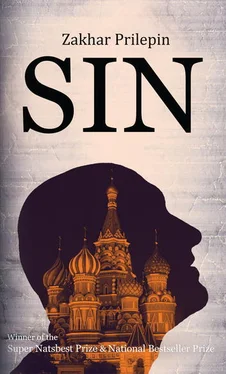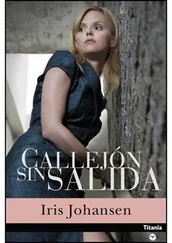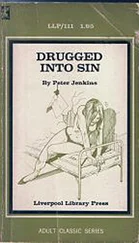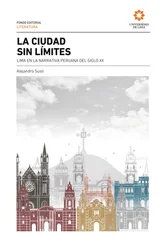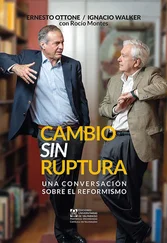He was awoken by the squealing of the pig.
“They’re slaughtering it already! Damn, I missed it.”
He jumped up from the bed and pulled on his shorts, almost falling over.
But the pig had only been tied up: with tightly pulled ropes cutting into its fatty hide, it stood in the darkness of the barn and started squealing every time it saw a human.
Zakharka watched it, standing in the doorway with his eyes only slightly pried open, without having yet washed his face, smiling.
There was not a single thought in his head, but somewhere underneath his heart he felt quietly pusling into his blood the strange sweet taste of the death of another, even an animal.
Screaming, pig? You want to live? Something was quivering in the dark and secret convolution of his brain.
Although reason, clear human reason, told him: you should feel pity, how can you not feel pity?
It’s a shame, he agreed easily..
And in fact it was hard to stand the squealing for long.
He slammed the door shut and approached his grandfather, who was sitting on a stump. Grandpa was sharpening an already sinister knife, constantly reflecting sunlight off its long blade.
Grandpa sternly refused to look at Zakharka.
“How does it know it’s going to be slaughtered?” asked Zakharka loudly, as soon as the squealing died down.
For a second, Grandpa raised his small and, Zakharka thought, for some reason unfriendly eyes. He stood up, and wandered over to his workshop.
He didn’t hear me, thought Zakharka.
“An animal knows everything,” said Grandpa softly, almost to himself, not addressing anyone.
In a minute he returned, and Zakharka understood that he had been wrong to think Grandpa was in a bad mood.
“You’ve never seen a pig being slaughtered?” Grandpa asked simply.
“No,” Zakharka replied happily.
Grandpa nodded. It was unclear what that meant: well, today you will, or good thing you haven’t.
Grandma appeared, clanging metal basins, of which she had managed to bring six at once.
She looked at Grandpa slowly puttering about, but she didn’t hurry him, although she had no desire to listen to the incessant squealing.
Zakharka hovered for a minute and decided to go to the outhouse.
The welcoming wooden hut covered on the inside with old wallpaper stood near the garden. On his way there, Zakharka always looked at the rows of watermelons.
The watermelons were insultingly small and green.
They won’t ripen before I leave. They won’t, Zakharka thought as usual, dejected.
It was dark inside the outhouse, but the sunlight came in through the spaces between the boards. There were always one or two heavy flies flying about. They never sat still for more than a few seconds. Again they would start their furious buzzing.
There was an old “Rural Mechanics Journal” hanging on a nail. Zakharka looked through it for the umpteenth time, understanding nothing. In this incomprehension, the lazy skimming of dusty pages, the sunny cracks, the wayward flies, the closeness of the wooden walls, the yellowed wallpaper peeling here and there, the rusty bolt, the ceiling covered in tarred black roofing paper so it wouldn’t leak — in everything there was a quiet, almost unattainable lyrical beneficence.
The pig’s cries were becoming eerier, more frightening, more detached. Zakharka hurried.
The squealing was cut off before he got there. He had to let Grandma pass too: she was hurrying somewhere, and by the look of her — a bit agitated but calmer at the same time ( …it’s all over, thank God… ) — Zakharka understood that the pig had been slaughtered.
With his red hands, Grandpa slowly untied (he could have cut them, but didn’t, in order to preserve the rope) the knots that were holding the pig to the drainpipe of the barn.
Did he intentionally not wait for me?… or was it unintentional? thought Zakharka, and could not figure out the answer.
First the pig’s backside started sagging as it was freed, but the pig was still held up, still tied by its huge neck to the pipe. Grandpa moved the basin, full of the blood that had poured from the slit throat, and undid the knot around the neck. The pig fell with a soft sound.
Zakharka went closer, looking with interest at the now-silent animal. An ordinary pig, just dead. With an even slit across the throat and a lot of white fat.
“I can’t seem to find the knife,” Grandpa, looked around. “Zakharka, look for it.”
The knife had been stuck into the barn wall. Its handle was warm, and the blade was covered in drying blood.
He gave Grandpa the knife, holding it by the sharp end. He got his fingers smeared, and later he looked at them.
They sliced open the pig’s stomach. It lay there, fallen open, exposed, red, raw. The insides were warm; you could warm your hands in them. If you squinted at them through a lightheaded haze, they might look like a bouquet of flowers. A warm bouquet of living, fleshy, bestial flowers.
Grandpa confidently removed the heart, kidneys, and liver, and threw them in basins. The contents of the large intestine he squeezed out by hand.
The living being that sullenly greeted Zakharka in the mornings, that rubbed its sides on the barn wall, that excitedly snorted upon seeing a bucket with slop, that was capable, in the end, of screaming with such unexpected power — that being turned out to be insignificant, worthless. You could slice it open, dismember it, and take out parts of it.
And here it was already, lying there cut off, the stupid pig head, with its snout up in the air, mouth open. It seemed as if the pig wanted to scream, that it was just about to let out a squeal.
And seeing that head, even the chickens were a bit stupefied, and the rooster avoided walking near, and the goat looked out from the dark with suffering Judaic eyes.
Zakharka went inside. Grandmother, hurrying to meet him with a rag in her hand, said:
“Eat, I left some food in there…”
But he didn’t. And not because he had lost his appetite at the sight of the slaughtered pig. He couldn’t wait to go to his cousins. Everything that was alive, that was glutted with life in its most real, primitive form, and was completely deprived of a soul — everything with those bright, colored, fragrant insides, with legs spread wide apart, with a senselessly turned up head, and with the clean smell of fresh blood, hindered him from staying in the same place, pulled him, diverted him, seethed inside him.
That same onerous pain, as if from ice water, that had been torturing him, was unexpectedly replaced with a feeling of delightful anticipatory heat. The heat was in his hands, his heart, his kidneys, his lungs: Zakharka saw his organs clearly, and they looked exactly the same as those that were steaming in front of him a minute ago. And from this realization of his own warm animal nature Zakharka felt his heart contracting, with particular passion and without pain, his real, fleshy heart, pumping blood to his arms, to his hot palms, and to his head, scalding his brain, and below, to his belly, where everything was… proud with the realization of eternal youth.
For some reason he grabbed the bow that was lying near the house, and started off with a feeling as if he had just killed an animal. And he didn’t find himself ridiculous at all.
He saw Rodik first, scaring off the chickens which were already afraid of him anyway. He was hardly able to keep himself from telling Rodik what it had been like. He even let a few syllables slip, and then cut himself off, idly moving his awkward lips.
Ksyusha came out. Katya followed her.
“Well, have they killed the pig?” asked Katya, widening her eyes, and with a look as if the dead pig was going to show up right there, snorting and squelching about with its slit throat.
Читать дальше
